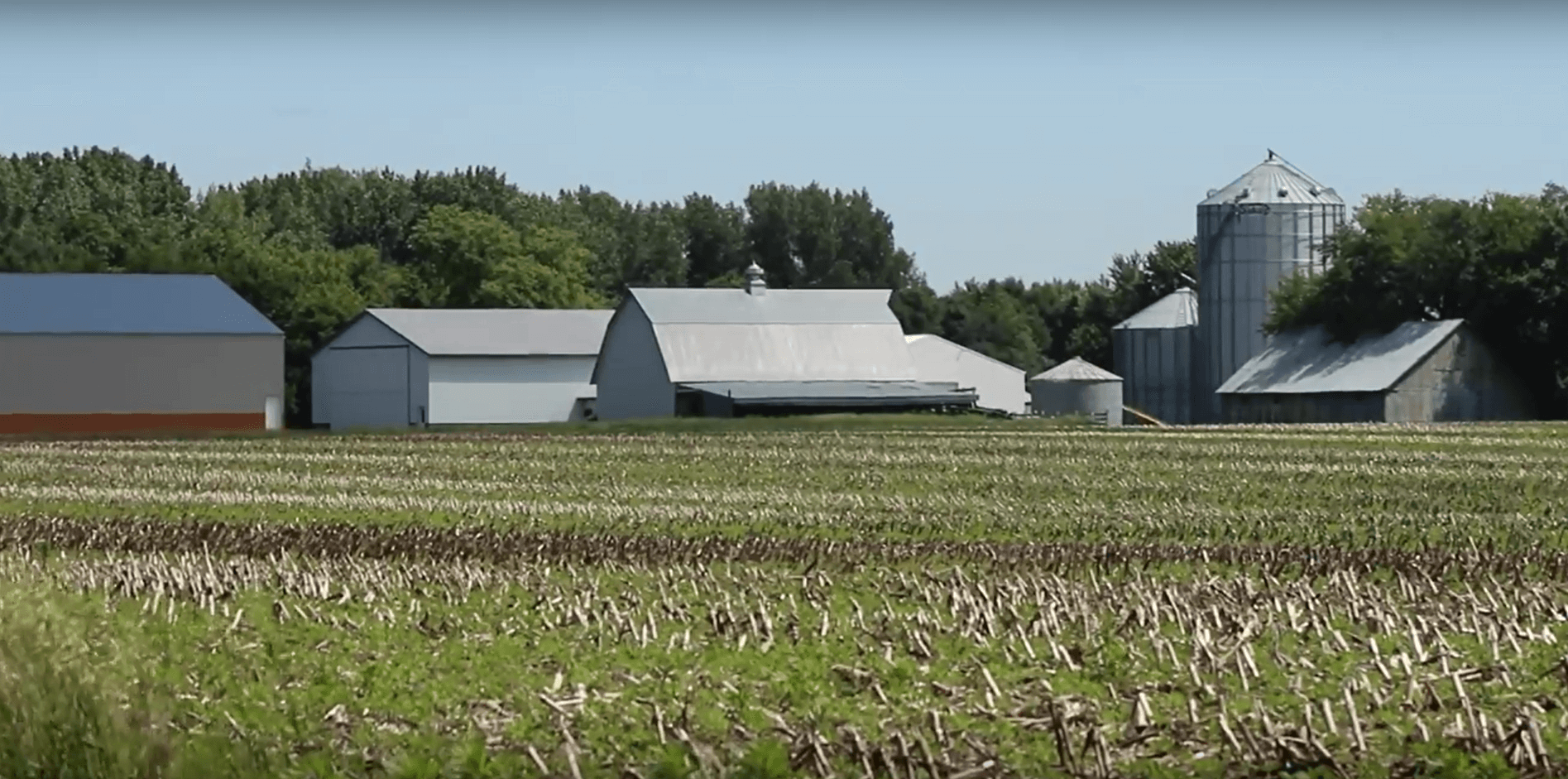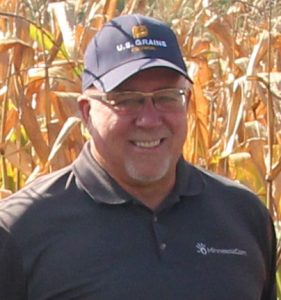 Reading Time: 3 minutes
Reading Time: 3 minutesWritten by Harold Wolle
On my farm in St. James, I am proud to have implemented several conservation practices that protect water quality, improve soil health and preserve wildlife habitat. I am also proud to serve as President of the Minnesota Corn Growers Association (MCGA), and lead the organization’s new initiative to make Minnesota corn farmers the most sustainable and environmentally responsible in the United States.
I must admit, sometimes I wonder what MCGA has gotten itself into. Pledging to become the most sustainable and environmentally responsible corn farmers in the country is no small task. But I truly believe it’s a task Minnesota’s corn farmers are capable of achieving.

Harold Wolle
Practices are already in place on many corn farms that benefit Minnesota’s environment, especially in the area of water quality. With more education and outreach, combined with a continued commitment to science-based research, conservation best management practices will become more widespread and beneficial to our state’s waterways.
A key component of MCGA’s plan calls on corn farmers to improve their management of nitrogen fertilizer to better protect water quality. Specific actions include following the University of Minnesota’s best management practices for nitrogen based on region of production, adequate soil and manure testing before applying nitrogen, avoiding fall nitrogen application on coarse textured soils, only applying nitrogen in the fall when soil temperatures are below 50 degrees and a nitrogen stabilizer is used, and split-applying nitrogen during the growing season (when practical).
The purpose of these recommendations is not to tell corn farmers how to farm. Every farm is different and what works on one farm may not be effective on another. We understand that. But corn farmers have invested a lot of their own money through our state’s check-off program in research efforts that address issues like water quality and the efficient management of nitrogen fertilizer.
Some of the above recommendations are the result of that corn-farmer funded research. They are scientifically proven to make a difference, both in protecting our state’s waterways and boosting a farmers’ bottom line. After all, nitrogen fertilizer is expensive. Farmers don’t want to see their nitrogen investment washed away during a rainstorm. They want it to remain on their field, helping grow a healthy crop.
As proud as we are of our sustainability goal, we’re also not re-inventing the wheel with our recommendations. Many corn farmers already implement these practices, along with several others.
On my own farm, I practice no-tilling to improve soil health. Grass-backed terraces are in place to guard against harmful runoff entering nearby waterways during heavy rains. Field windbreaks reduce soil erosion and create a “greenhouse effect” to help crops thrive. Wetlands – both restored and original – are located throughout our farming acres.
Despite what you sometimes see in the media and from anti-agriculture activist groups, progress is being made in the area of farming and water quality. We’re not yet where we’d like to be, but I believe we’re moving in the right direction. MCGA’s new plan is designed to cut through the clutter and help gets us to where we need to be quicker.
We want to make sure farmers have the best science-based information available to them so they can be confident that they are making decisions that benefit both their farms and the surrounding environment. And we want our non-farming friends and neighbors to know that in addition to growing food, feed, fiber and fuel for an increasing world population, we’re working to protect the water and environmental resources that we all value.
If Minnesota corn farmers can overcome everything Mother Nature and the volatile marketplace throws at us, we’re more than capable of becoming the most sustainable and environmentally responsible in the United States. I look forward to the journey toward achieving this goal.
Harold Wolle farms near St. James and is President of the Minnesota Corn Growers Association.

